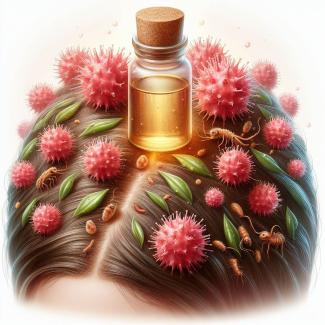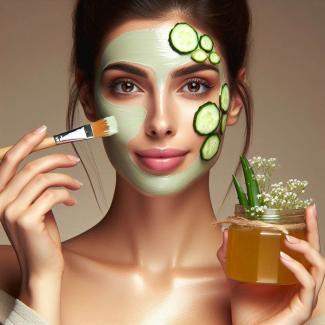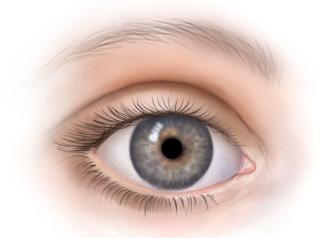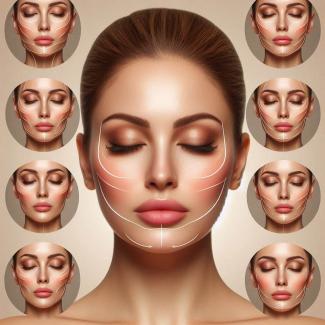
Clove oil, derived from the dried flower buds of the clove tree (Syzygium aromaticum), is a potent essential oil with a wide range of applications, including topical use on the scalp to combat fungi or pathogens. Here's a detailed description of clove oil:
Description: Clove oil is a pale yellow to brownish-yellow essential oil with a characteristic warm, spicy aroma. It is highly concentrated and should be used sparingly due to its potency. The oil is extracted through steam distillation of dried clove buds, resulting in a potent and fragrant liquid.
Composition: Clove oil is primarily composed of eugenol, a compound known for its antimicrobial, antifungal, and analgesic properties. Additionally, it contains other bioactive compounds such as eugenyl acetate, β-caryophyllene, and α-humulene, which contribute to its therapeutic effects.
Benefits:
- Antifungal Properties: Clove oil exhibits strong antifungal properties, making it effective against various fungal infections, including those that affect the scalp, such as dandruff or seborrheic dermatitis.
- Antimicrobial Action: The oil's antimicrobial properties help combat bacteria and other pathogens on the scalp, promoting a healthy scalp environment.
- Anti-inflammatory Effects: Clove oil possesses anti-inflammatory properties that can help alleviate scalp irritation, redness, and inflammation caused by fungal or bacterial infections.
- Analgesic Effects: Due to its high eugenol content, clove oil has analgesic properties, which may provide relief from scalp discomfort or pain associated with infections.
Topical Application: Before applying clove oil to the scalp, it's essential to dilute it with a carrier oil to prevent skin irritation. Suitable carrier oils include coconut oil, olive oil, or jojoba oil. A recommended dilution ratio is approximately 1 to 2% clove oil to carrier oil.
To use clove oil topically on the scalp:
- Dilute clove oil with a carrier oil in the desired ratio.
- Apply the diluted oil mixture to the scalp using a cotton pad or gently massage it into the scalp with clean fingertips.
- Leave the oil on for a minimum of 30 minutes or overnight for maximum benefits.
- Rinse off the oil with warm water and a mild shampoo.
Caution:
- Clove oil is potent and may cause skin irritation or allergic reactions in some individuals. Perform a patch test before using it extensively on the scalp.
- Avoid contact with eyes and mucous membranes.
- Do not ingest clove oil as it can be toxic in large doses.
- Keep clove oil out of reach of children and pets.
In conclusion, clove oil is a valuable natural remedy with potent antifungal and antimicrobial properties, making it a suitable option for topical use on the scalp to combat fungi or pathogens. However, proper dilution and caution are necessary to ensure safe and effective use.
How to make oil from cloves
Making clove oil at home involves a straightforward process and requires minimal ingredients. Here's a detailed description of how to make clove oil:
Ingredients:
- Dried whole cloves (Syzygium aromaticum)
- Carrier oil (e.g., olive oil, coconut oil, almond oil)
- Mortar and pestle or coffee grinder (optional)
- Double boiler or saucepan and heatproof bowl
- Cheesecloth or fine mesh strainer
- Dark glass bottle for storage
Procedure:
- Prepare the cloves:
- Start by selecting high-quality dried whole cloves. Ensure they are clean and free from any contaminants.
- If the cloves are whole, you can crush them lightly using a mortar and pestle or pulse them a few times in a coffee grinder. Crushing or grinding the cloves will help release their aromatic compounds more efficiently.
- Prepare the carrier oil:
- Choose a carrier oil such as olive oil, coconut oil, or almond oil. These oils act as a base and help extract the aromatic compounds from the cloves.
- Pour the carrier oil into a double boiler or a heatproof bowl placed over a saucepan of water. Heat the oil gently over low to medium heat. Avoid overheating the oil, as this may degrade its quality.
- Infusion process:
- Once the carrier oil is warm (but not boiling), add the crushed or whole cloves to the oil.
- Allow the cloves to infuse in the warm oil for several hours to several days. The longer the infusion time, the stronger the resulting clove oil will be. You can leave the mixture to infuse in a warm place, such as near a sunny window or on a countertop.
- Straining the oil:
- After the desired infusion period, remove the mixture from heat and let it cool slightly.
- Strain the infused oil through a cheesecloth or fine mesh strainer into a clean, dry container to remove the solid particles of cloves. Squeeze the cheesecloth to extract as much oil as possible.
- Discard the used cloves or compost them.
- Bottling and storage:
- Transfer the strained clove oil into a dark glass bottle using a funnel to prevent exposure to light, which can degrade the oil's quality.
- Seal the bottle tightly with a lid and label it with the date of preparation.
- Store the clove oil in a cool, dark place away from direct sunlight and heat sources. Properly stored, homemade clove oil can last for several months to a year.
Safety Precautions:
- Avoid using cloves that are moldy or contaminated.
- Be cautious when heating the carrier oil to prevent burns or overheating.
- Perform a patch test before using the clove oil topically to check for any allergic reactions or skin sensitivity.
- Keep homemade clove oil out of reach of children and pets.
By following these steps, you can create your own homemade clove oil, which can be used for various purposes, including aromatherapy, massage, or topical applications for its medicinal properties.






